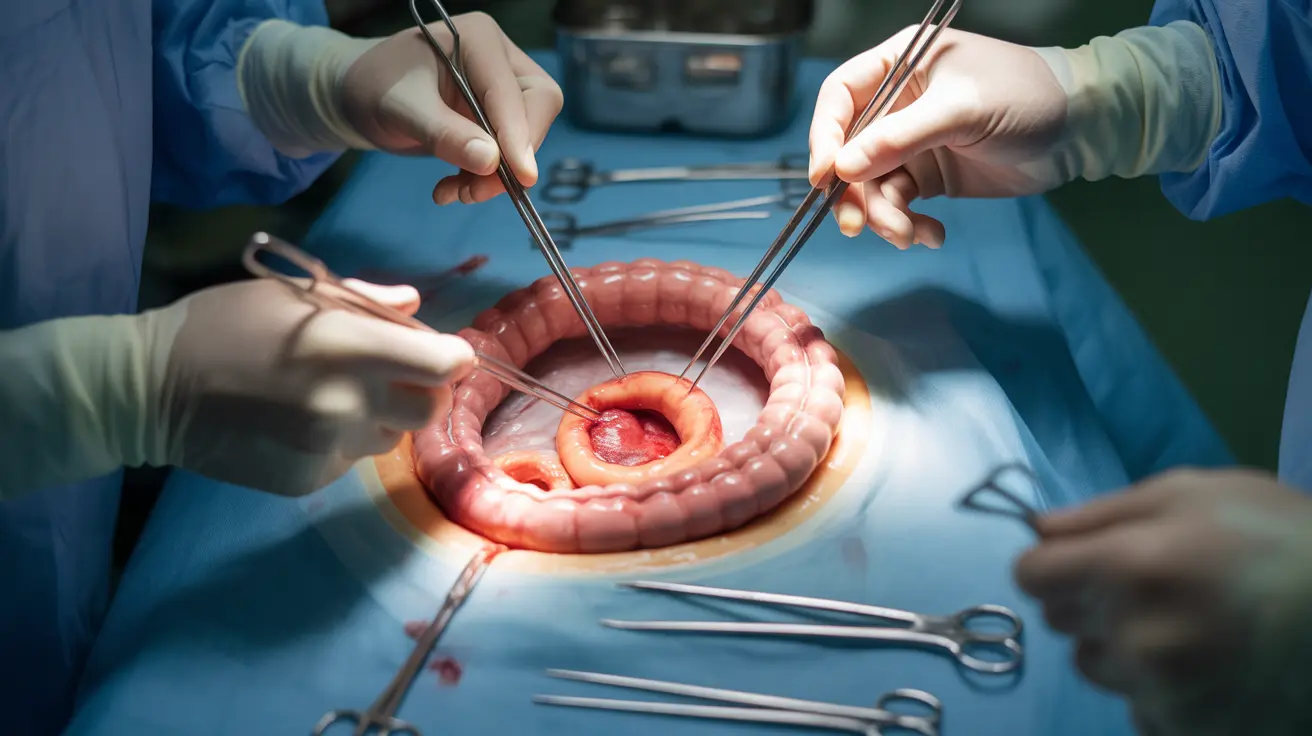For individuals living with ulcerative colitis (UC), a colectomy may become a necessary treatment option when medical therapies fail to control symptoms or prevent complications. This surgical procedure, which involves removing all or part of the colon, can be life-changing and requires careful consideration of various factors, including timing, surgical approach, and recovery expectations.
Understanding what a ulcerative colitis colectomy entails, its various types, and what to expect during recovery can help patients make informed decisions about their treatment journey. This comprehensive guide explores the essential aspects of this surgical intervention and its impact on quality of life.
When Is Colectomy Necessary for Ulcerative Colitis?
A colectomy becomes necessary in several situations when managing ulcerative colitis:
- Failure of medical therapy to control symptoms
- Severe bleeding or infection
- High risk of developing colorectal cancer
- Toxic megacolon (a severe complication)
- Perforation of the colon
- Significant impact on quality of life despite medications
Types of Colectomy Procedures
Total Proctocolectomy with Ileal Pouch-Anal Anastomosis (IPAA)
This is the most common type of surgery for ulcerative colitis. It involves removing the entire colon and rectum while creating an internal pouch from the small intestine. This procedure allows patients to maintain relatively normal bowel function without requiring a permanent external bag.
Total Proctocolectomy with Permanent Ileostomy
In this procedure, surgeons remove the entire colon and rectum, creating a permanent opening in the abdomen (stoma) through which waste passes into an external collection bag. This may be recommended for certain patients based on their specific circumstances.
Recovery and Healing Process
Recovery from a ulcerative colitis colectomy typically involves several stages:
- Initial hospital stay (5-7 days on average)
- Gradual return to normal activities over 4-6 weeks
- Dietary modifications during healing
- Physical therapy and exercise as recommended
- Regular follow-up appointments
Managing Diet and Lifestyle After Surgery
Dietary considerations play a crucial role in recovery and long-term success after colectomy:
- Start with clear liquids
- Gradually introduce soft foods
- Avoid high-fiber foods initially
- Stay well-hydrated
- Eat smaller, more frequent meals
- Monitor and adjust diet based on body response
Potential Complications and Long-term Considerations
While colectomy can significantly improve quality of life, patients should be aware of potential complications:
- Infection at the surgical site
- Bleeding
- Bowel obstruction
- Pouch-related complications (for IPAA)
- Changes in bowel habits
- Fertility considerations
Frequently Asked Questions
When is a colectomy necessary for someone with ulcerative colitis, and what are the most common reasons for surgery?
A colectomy becomes necessary when medical treatments fail to control symptoms, or when serious complications arise such as severe bleeding, toxic megacolon, or high risk of colorectal cancer. The most common reasons include medication resistance, severe disease progression, and life-threatening complications.
What are the main types of colectomy surgeries for ulcerative colitis, and how do they affect bowel function and quality of life?
The main types are total proctocolectomy with IPAA (J-pouch) and total proctocolectomy with permanent ileostomy. IPAA allows for more normal bowel function through an internal pouch, while an ileostomy requires an external collection bag but may be more suitable for certain patients.
What should I expect during recovery from an ulcerative colitis colectomy, and how long does it take to return to normal activities?
Recovery typically involves a 5-7 day hospital stay, followed by 4-6 weeks of gradual return to normal activities. Patients can expect dietary restrictions, physical therapy, and regular medical follow-up during this period.
What are the possible risks and complications of having a colectomy for ulcerative colitis, including long-term effects on health and bowel habits?
Possible complications include surgical site infections, bleeding, bowel obstruction, and pouch-related issues. Long-term effects may include changes in bowel habits, fertility considerations, and the need for ongoing medical monitoring.
How does my diet and lifestyle need to change after a colectomy for ulcerative colitis, and what foods should I avoid during recovery?
Initially, patients should follow a clear liquid diet, gradually advancing to soft foods. High-fiber foods should be avoided early in recovery. Long-term dietary adjustments may be necessary, including eating smaller, more frequent meals and staying well-hydrated. Working with a nutritionist can help develop an appropriate dietary plan.




